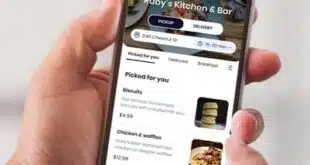Amazon.com Inc. on Tuesday said it will jump into the digital-currency market with Amazon Coins, a payment product it will roll out in May on for its popular tablet, the Kindle Fire. Users of the device will be able to redeem the new currency on the Amazon Appstore, which lets developers sell games, apps, and in-app items.
To jumpstart the new currency when it launches, Amazon said it will give away “tens of millions of dollars worth” of Coins to Appstore users, who will be able to buy more Coins using their Amazon accounts. “Developers continue to report higher conversion rates on Amazon compared to other platforms,” said Paul Ryder, vice president of apps and games for Amazon, in a statement. “Now we have another new way to help developers reach even more of our millions of customers.”
Amazon Coins are worth a penny each, Amazon says, and can be used to buy in-game currency on the app store. But usage is restricted to the United States.
While Amazon users can already use cards on file to easily buy from the Seattle-based Web giant, the new currency is likely aimed at younger customers who are attracted to games and apps but don’t have cards, says Beth Robertson, director of payments research at Javelin Strategy & Research, Pleasanton, Calif. Indeed, the Coins could serve as a means by which parents could control such spending by their teens.
The currency could also prove useful as a way to monetize small-value goods while avoiding the friction caused by cards’ acceptance costs, says Robertson. “The app and gaming markets are commonly supported by micropayments, with in-game or in-app earn opportunities that can then drive additional purchases and monetization,” she notes in an e-mail message to Digital Transactions News. “So, while a stored credit card might be as easy to use, it might be less appropriate to the transaction and does not necessarily drive additional purchase activity.” Amazon did not return a phone call asking for comment.
Because of Amazon’s size and influence, Coins has the potential to be accepted on other sites and ultimately become a de facto currency across the Web, Roberson adds. Still, similar efforts by other massive Internet players have not always fared well. Last June, for example, Facebook said it would phase out its 3-year-old Facebook Credits virtual currency. The move came just 11 months after the huge social network had mandated that developers use Credits for transactions.
Developers who are looking to start hawking their wares on the Amazon Android Appstore must have their apps approved by April 25 to take advantage of the introduction of Coins, Amazon says. Sellers with products currently in the store need do nothing to accept the currency. Transactions with Coins will carry the standard 30% commission, says Amazon.
In related news, Google Inc. said it is working on what it calls “new forms of payment” for developers who sell on its Google Play marketplace. The search giant, which made the reference in an e-mail message to developers to outline a new timetable for payouts, was not more specific and did not return a call asking for more details.
Currently, customers on Play can use direct carrier billing for purchases, as well as credit, debit, and gift cards. Visa, MasterCard, American Express, and Discover usage is supported through integration with Google Wallet. Industry speculation is focusing on a so-called Wallet Balance that can be funded with transfers from the user’s checking account. Such a feature was mentioned in November as part of leaked details of the upcoming Google Wallet overhaul.





